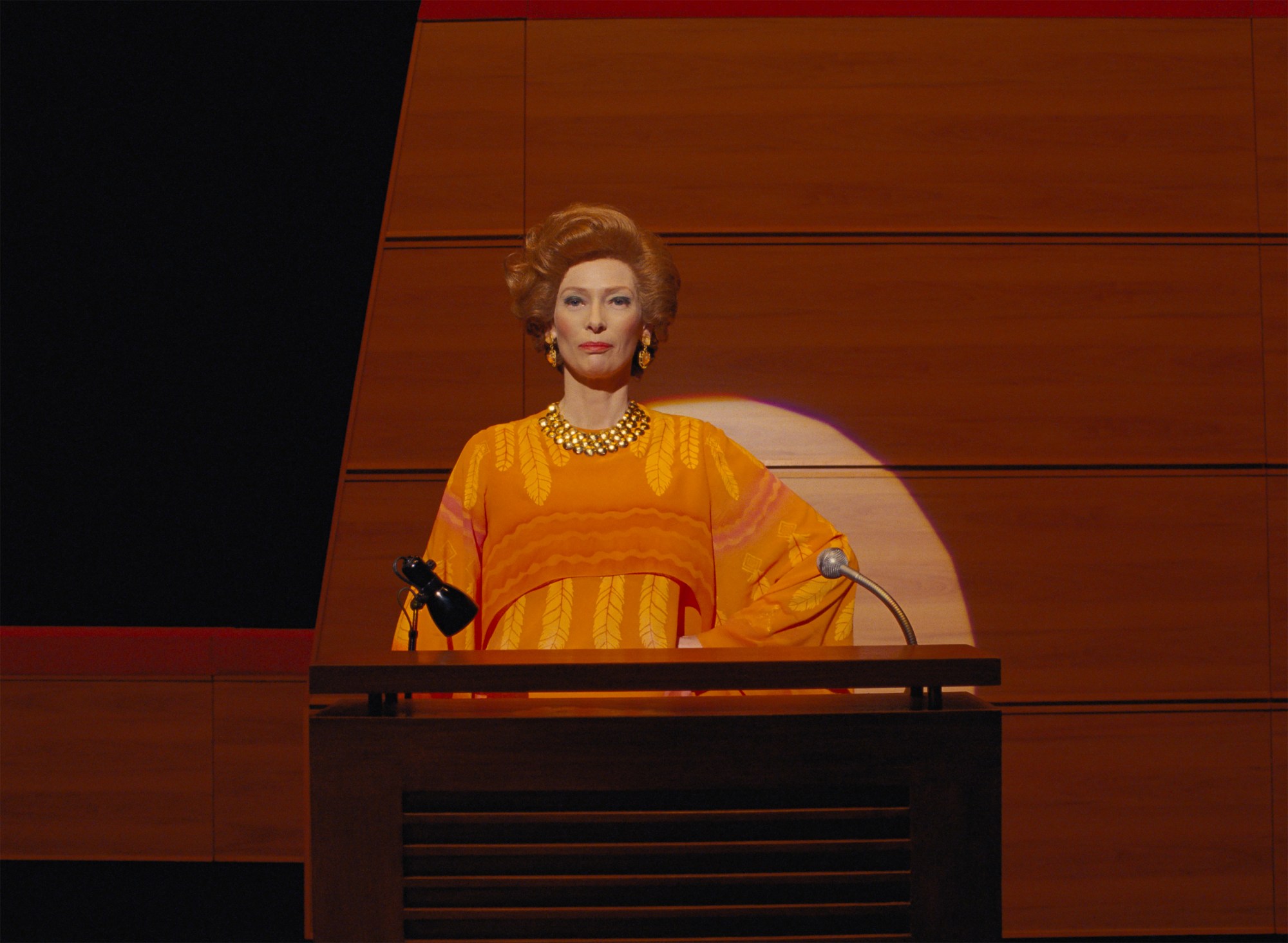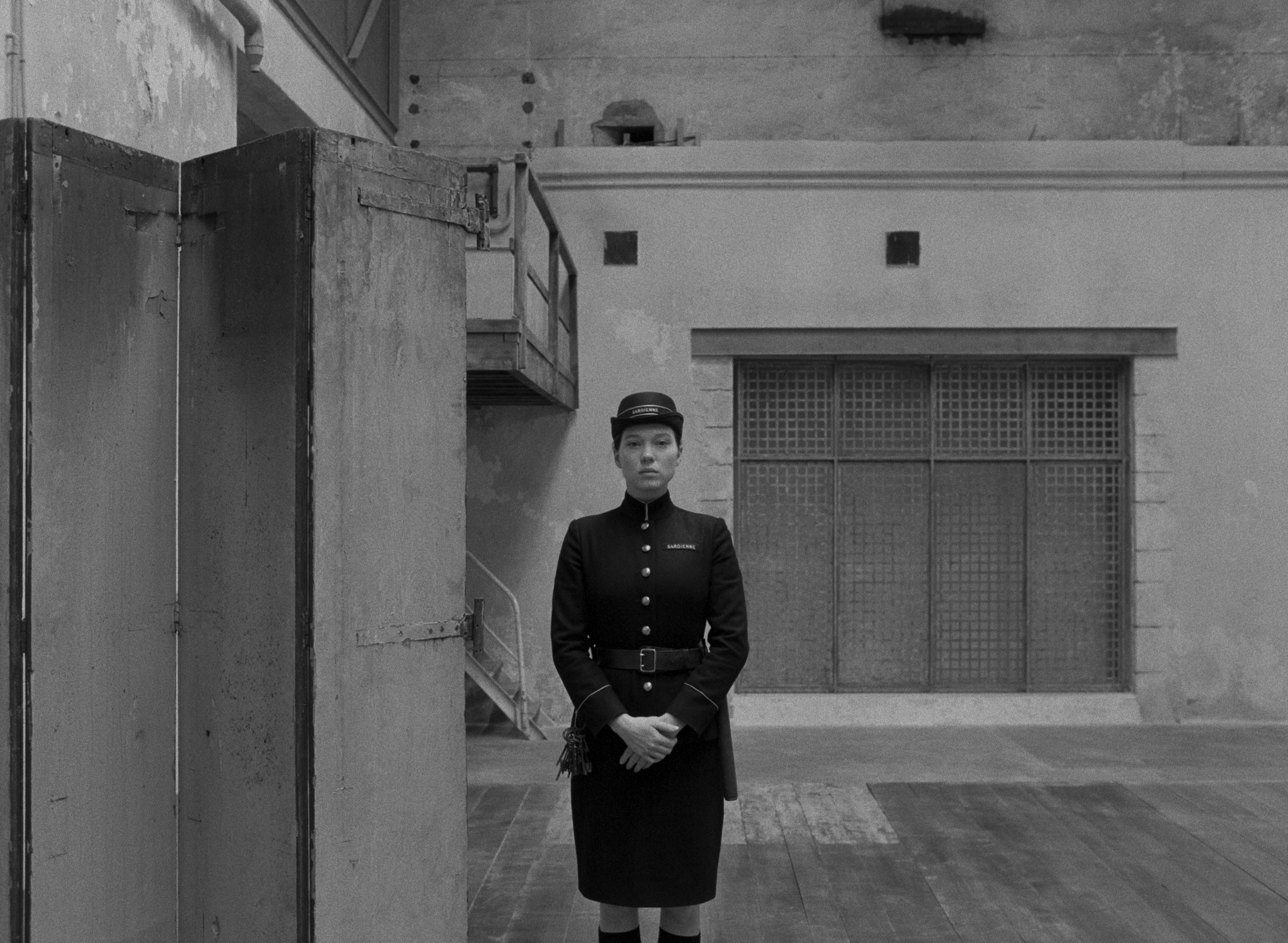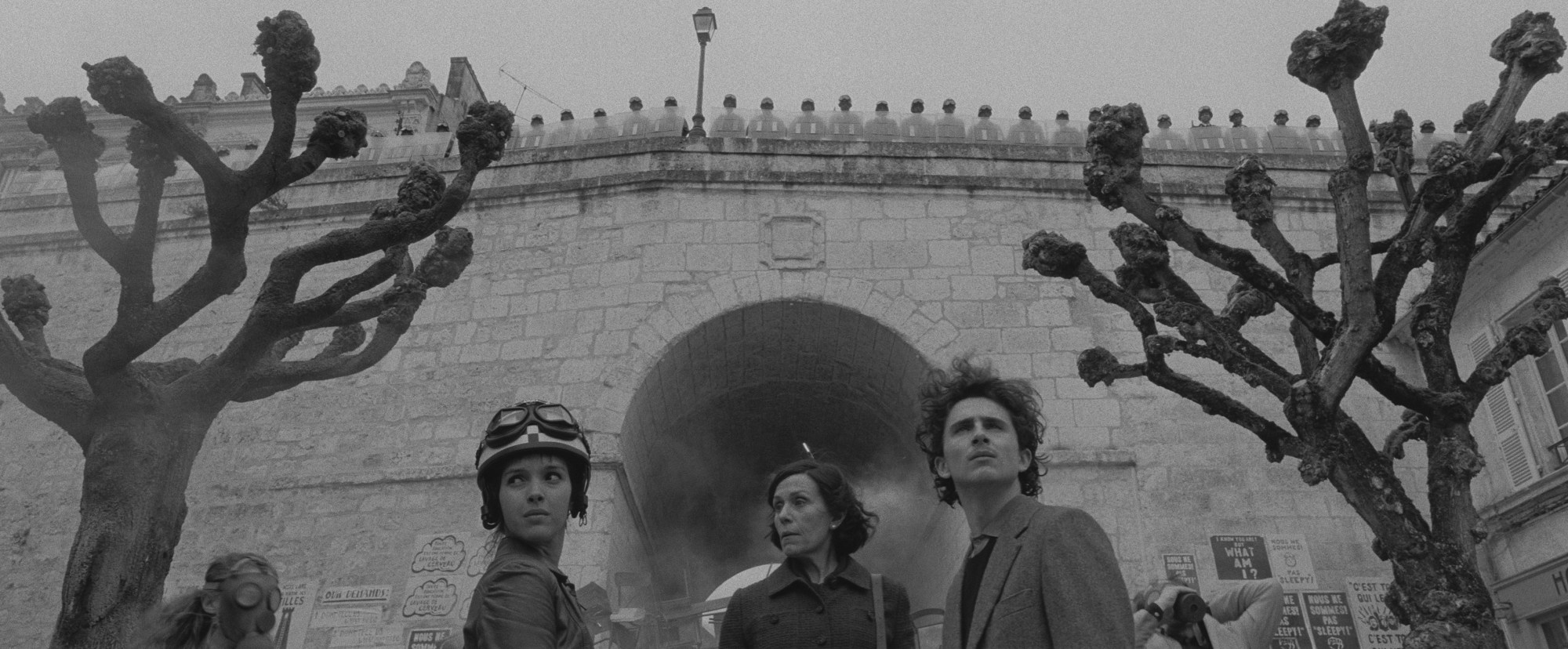Warning: this piece includes mild spoilers for The French Dispatch.
Here we are. What has been a truly traumatic few years for anyone who’s stanned just about every relevant filmmaker and actor working right now is finally coming to an end: Wes Anderson’s latest movie The French Dispatch has just premiered at the Cannes Film Festival, and it’s met (nay, exceeded) just about everybody’s lofty expectations.
Starring Benicio Del Toro, Léa Seydoux, Adrien Brody, Tilda Swinton, Owen Wilson, Frances McDormand, Elisabeth Moss, Bill Murray, Jeffrey Wright, Willem DaFoe, Anjelica Houston and Liev Schreiber, as well as, of course, cinema’s most in demand man of the moment, Timothée Chalamet, we have seen it and are delighted to confirm it’s as colourful, imaginative, thoughtful and off-beat as all of his best. For fans of his most recent work — perhaps The Grand Budapest Hotel, in particular — it’s a treat: a fast-paced but never loose-handed character-driven caper with the specific ornate beauty he’s known for.
Told in a triptych The French Dispatch, as we know, is set in the fictional French city of Ennui-sur-Blasé; a dead-ringer for Paris shaped throughout history by its sex workers, high rat population, pretty vistas and artsy bourgeoisie. We’re introduced to it in an early segment that’s a little like a travel guide, narrated by the journal’s cycling reporter Owen Wilson. “All grand beauties withhold their deepest secrets,” he tells us.

What The French Dispatch’s purpose is is much like the purpose of any great journalistic title: to frame those deepest secrets, and the secret sides of the most public events, in a manner that makes them singular and special and moreover, documented in the first place. In some ways, the movie feels like an ode to old school journalism, where the most important tales that would otherwise exist only in the minds of a few are given the attention they deserve. The French Dispatch’s journalists are the figures who take us through this story.
The cast is mighty as we already know, and we briefly meet the staffers in the magazine’s Ennui office first. Bill Murray’s character Arthur Howitzer Jr., who inherited the title from his father, took it international, and has cared for it like a child throughout his life, has died — we learn this in the opening minutes. It’s his wish for the magazine to be closed upon his death — wary, perhaps of how it may change in his absence. His staff are to be offered major pay offs and the magazine to be folded. All they have is one last issue to do; it just so happens to be a budget-stretching behemoth packed with overlong, twisting stories for the format. These are the stories we hear.

There is “The Concrete Masterpiece”: a story of an imprisoned murderer Moses Rosenthaler (Benicio Del Toro), his jail officer muse Simone (Lea Seydoux) and the art dealer Julien Cadazio (Adrien Brody) who promises to make a legend of the murderer’s abstract work that has been showcased in an art show of incarcerated talents. It’s narrated by Tilda Swinton’s absurdly accented J. K. L. Berensen, giving the actor her best opportunity to ham it up since her turn in Bong-Joon Ho‘s Okja.
Though Tilda narrates her segment like a lecture with projected slides, Frances McDormand’s Lucinda Krementz lives inside of her story. “Revisions of a Manifesto” sees her following the lives (perhaps a little too closely) of a group of student protestors — “the pimple cream and wet dream contingent” she calls them — staging an uprising against the establishment. Their leader is Zeffirelli, a charismatic chess player and activist played by Timothée in his first role since 2019’s Little Women.
The film unpacks, at breakneck speed, a love triangle with Zeffirelli, Krementz and the sparky and expressive Juliette, played by Lyna Khoudri. The carnal tension that feels out of place in a Wes Anderson movie still manages to feel on-brand. No sex is shown (no, there’s not a Frances x Timmy sex scene) — but Zeffirelli does leap out of a bath clutching his bits, kisses his new beau with a crisp in his mouth and, via voiceover, longs to know if she’ll remember the “tip of [his] tool on [her] tongue”.
The closing story “The Private Dining Room of the Police Commissioner” is, albeit crazy, far more sentimental than those that come before it. It’s about the Dispatch’s resident queer Roebuck Wright, played by Jeffrey Wright, capturing a character loosely inspired by James Baldwin. He extrapolates a goose-chase tale from a story for the magazine’s food section starring showgirls, abductions and just about everything that isn’t to do with food, but gets to the beating heart of its core subject and the purpose of these profiles regardless. There are even moments in which the story transfers into comic strips for the more mad-hatter sequences, making the whole thing feel like an old-world publication come to life.

There is no Wes film without a remarkable eye for styling, and it slips in and out of black and white and colour without a moment’s notice, meaning those iconic soft hues of his are never far away. These black-and-white segments do feel like an archiving of history; stories saved from the burning wreckages of flailing memories, and immortalised.
The set design and world-building is, as always, immaculate. From the opening scenes, his imaginary French city sings with the spirit of a world well-lived in: cats of all colours on the roof, kids bustling through the streets like nuisances; an imaginary war scene with fireworks and mayhem that, even in grayscale, feels as fascinating and, of course, perfectly uniform with its framing. There’s a scene in the first chapter in which mayhem unfolds. Wes pauses it like a renaissance painting, smoke, chains and hollering bodies all standing perfectly still as his camera scrolls across them. No filmmaker can capture chaos and make it look immaculate, but Wes somehow finds a way.
The French Dispatch is an important film in Wes Anderson’s world. In some ways it feels like his most mighty: ambitious, vast, with plenty of opportunities to put a foot wrong. And yet somehow he manages to stay determined, rock solid and focused on his story. This frenetic and fabulous, high-spirited film, a love letter to journalism’s potential to be real art in the right hands, is really, really special. Watch it once and you’ll be desperate to see it again as soon as those credits roll.
The French Dispatch premiered at the Cannes Film Festival, and will be released in cinemas globally on 22 October 2021
